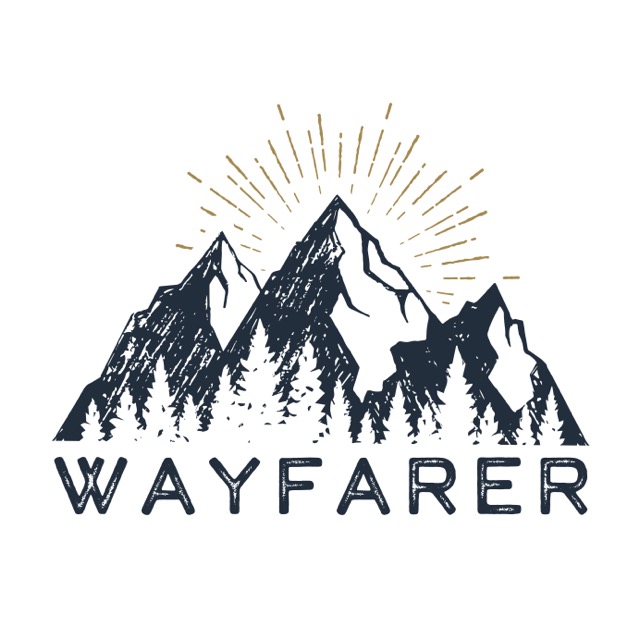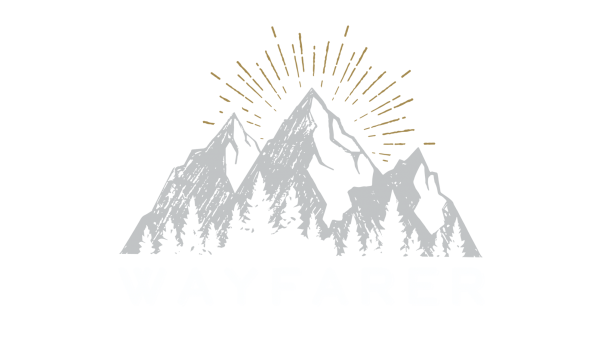by Joseph Little
An excerpt from Letters from the Other Side of Silence
Appears in The Wayfarer, Spring 2017 Issue (Vol 6. Issue 6) | Visit the Store»
Here’s the truth: Something happened on that volcano in Guatemala. I’m just not sure what.
Steve was in the lead, talking with two teachers from Canada. I was trailing behind, nursing a bad knee. Yes, Steve was in the lead and I was trailing behind and then it happened.A word about Steve. He’s the kind of guy who’s as comfortable in a Navajo sweat lodge as he is playing euchre. He hikes, he skis, he ice climbs, he reads. He speaks fluent Spanish and passable French. He paddles. He drums. On this particular day on the volcano, he complimented a guy on the Native pattern of his vest, swapped jokes with the guide in Spanish, and bandaged a woman’s ankle—yes, bandaged a woman’s ankle—in the time it took me to eat a power bar. Yes, Steve was in the lead.
A word about Steve. He’s the kind of guy who’s as comfortable in a Navajo sweat lodge as he is playing euchre. He hikes, he skis, he ice climbs, he reads. He speaks fluent Spanish and passable French. He paddles. He drums. On this particular day on the volcano, he complimented a guy on the Native pattern of his vest, swapped jokes with the guide in Spanish, and bandaged a woman’s ankle—yes, bandaged a woman’s ankle—in the time it took me to eat a power bar. Yes, Steve was in the lead.The volcano in question was Pacaya, that black monster of the western highlands known for its dramatic displays of lava, which surge against prediction and against a landscape so austere it rivals the moon. We found Pacaya in Steve’s guidebook one Easter weekend. Something about punishing switchbacks and menacing rivers of lava over which folks could roast marshmallows (and they did), and we were in. It all seemed so sensible from the sturdy haven of our friend’s cottage, Merlot in hand.
The volcano in question was Pacaya, that black monster of the western highlands known for its dramatic displays of lava, which surge against prediction and against a landscape so austere it rivals the moon. We found Pacaya in Steve’s guidebook one Easter weekend. Something about punishing switchbacks and menacing rivers of lava over which folks could roast marshmallows (and they did), and we were in. It all seemed so sensible from the sturdy haven of our friend’s cottage, Merlot in hand.Somewhere around 8,000 feet, that all changed. The lush trees that lined our path gave way to shards of basalt, then rock, then long slopes of rubble that climbed into the sky. It was as if God had swept the moon and deposited the results here in long, gesticulative pours. What few trees remained were arthritic and bent, their charred branches as hapless as they were calligraphic against the bright Mayan sky. Soon there was no path, only a windswept ascent that stratified everyone by ability. We would turn a corner, and strange new vistas would appear: jagged fissures in the earth two yards long, coils of braided rock, and waves, waves of lava having long been cooled, blackened, their motion frozen in time. “Pahoehoes,” they call them, these cases of rock becoming liquid becoming solid again. Stray dogs in need of warmth sought the company of the fissures, natural manhole covers that vented sulphur and steam from beneath the earth’s crust.
Somewhere around 8,000 feet, that all changed. The lush trees that lined our path gave way to shards of basalt, then rock, then long slopes of rubble that climbed into the sky. It was as if God had swept the moon and deposited the results here in long, gesticulative pours. What few trees remained were arthritic and bent, their charred branches as hapless as they were calligraphic against the bright Mayan sky. Soon there was no path, only a windswept ascent that stratified everyone by ability. We would turn a corner, and strange new vistas would appear: jagged fissures in the earth two yards long, coils of braided rock, and waves, waves of lava having long been cooled, blackened, their motion frozen in time. “Pahoehoes,” they call them, these cases of rock becoming liquid becoming solid again. Stray dogs in need of warmth sought the company of the fissures, natural manhole covers that vented sulphur and steam from beneath the earth’s crust.After our final turn, I felt the heat of the lava a few seconds before I saw it. After an hour’s hike, it was more than a little disappointing–a small vein of red oozing from a titanic wall of black rock (punishing switchbacks, yes, but a river of hellfire this was not)–until I witnessed the wall itself swell and glow, breathing in ways my Midwestern eyes couldn’t reckon. At first, I thought it was just the heat shimmering off the wall, the way a paved road can make the summer horizon dance, but then it cracked. Cracked, I tell you, after centuries, maybe millennia of indifference to the world. The wall cracked and began to crumble, spewing impermanence everywhere as it dismantled itself boulder by fiery boulder until nothing remained but a sea of orange suede.
After our final turn, I felt the heat of the lava a few seconds before I saw it. After an hour’s hike, it was more than a little disappointing–a small vein of red oozing from a titanic wall of black rock (punishing switchbacks, yes, but a river of hellfire this was not)–until I witnessed the wall itself swell and glow, breathing in ways my Midwestern eyes couldn’t reckon. At first, I thought it was just the heat shimmering off the wall, the way a paved road can make the summer horizon dance, but then it cracked. Cracked, I tell you, after centuries, maybe millennia of indifference to the world. The wall cracked and began to crumble, spewing impermanence everywhere as it dismantled itself boulder by fiery boulder until nothing remained but a sea of orange suede.It was too much for me, all that cracking and dismantling. Nearby noises, Steve’s banter with the Canadians, the guide’s “
It was too much for me, all that cracking and dismantling. Nearby noises, Steve’s banter with the Canadians, the guide’s “vamos! vamos!”: It all retreated into the distance. And then, with no warning, it happened: My syntax simply departed, leaving my words to float in the atmosphere like dust. My rationality, drifting out there among the birds. Soon enough, the words themselves scattered and dissolved, leaving me to experience the world without categories, without reference. Ever tried to take a math test while falling into a lake while sleeping? Well, it was just like that.If only I had met Yuri before climbing Pacaya. Yuri, the middle-aged Russian mystic I would meet in Nepal the following year. Yuri, who after 45 days of meditation would invite me over to his mountain shack for incense and a fire. “There is no I and you, there is only we,” he said in all seriousness before turning a watery gaze to the Himalayas. “See that man plowing the mustard field? We are plowing the mustard field,” he said. Yuri was a man of wide intelligence (think John Malkovich), a professional back in Moscow, but one of no particular standing since he was accustomed to saying things like “A man who wants is a man at war with himself” and “Are we not all One, the humans, the birds, the sky unending?” And of course there was the small impracticality of his silent sitting for months on end, his just being.
If only I had met Yuri before climbing Pacaya. Yuri, the middle-aged Russian mystic I would meet in Nepal the following year. Yuri, who after 45 days of meditation would invite me over to his mountain shack for incense and a fire. “There is no I and you, there is only we,” he said in all seriousness before turning a watery gaze to the Himalayas. “See that man plowing the mustard field? We are plowing the mustard field,” he said. Yuri was a man of wide intelligence (think John Malkovich), a professional back in Moscow, but one of no particular standing since he was accustomed to saying things like “A man who wants is a man at war with himself” and “Are we not all One, the humans, the birds, the sky unending?” And of course there was the small impracticality of his silent sitting for months on end, his just being.Even Party Al would have helped me understand Pacaya. Party Al, Steve’s college roommate, who would sit in silence for hours during the blaze of day. Steve would come home between classes to find Al sitting in the living room, upright and motionless.
Even Party Al would have helped me understand Pacaya. Party Al, Steve’s college roommate, who would sit in silence for hours during the blaze of day. Steve would come home between classes to find Al sitting in the living room, upright and motionless.“What are you doing?” Steve would ask, to which Al would offer a slow “Sitting.”
“What are you doing?” Steve would ask, to which Al would offer a slow “Sitting.”“Yeah, I can see that. But sitting and reading? Sitting and thinking? Sitting and what?”
“Yeah, I can see that. But sitting and reading? Sitting and thinking? Sitting and what?”“Just sitting,” Al would reply.
“Just sitting,” Al would reply.As you might have guessed, Al was something of a partier, but what you wouldn’t have known, what no one knew from the looks of him, was that he was also a renowned bagpipe player. Among the students, Al was celebrated for his ability to muscle out a performance with terrific prowess before a crowd of thousands while throbbing in pain from the booze-fueled antics of the night before, and that libertine reputation led to less than charitable interpretations of what he was actually doing during all that living room sitting. But I can’t help but think there was something going on behind that blank stare of his, that there was something more to Party Al, or less, a something less than nothing that moved him beyond language to the other side of silence. Yes, that there was something less to Party Al than bagpipes and cottonmouth, to which Yuri would have offered a knowing nod. What I would give to see him up on that mountain with Yuri. Yuri would surely be impressed by his bagpipes, but would their silences be two parts of a greater whole?
As you might have guessed, Al was something of a partier, but what you wouldn’t have known, what no one knew from the looks of him, was that he was also a renowned bagpipe player. Among the students, Al was celebrated for his ability to muscle out a performance with terrific prowess before a crowd of thousands while throbbing in pain from the booze-fueled antics of the night before, and that libertine reputation led to less than charitable interpretations of what he was actually doing during all that living room sitting. But I can’t help but think there was something going on behind that blank stare of his, that there was something more to Party Al, or less, a something less than nothing that moved him beyond language to the other side of silence. Yes, that there was something less to Party Al than bagpipes and cottonmouth, to which Yuri would have offered a knowing nod. What I would give to see him up on that mountain with Yuri. Yuri would surely be impressed by his bagpipes, but would their silences be two parts of a greater whole?
I know what you’re thinking. No, I wasn’t high up there on Pacaya. I wasn’t low. I wasn’t looking for an experience to transform my life into something special. Stripped of language, I simply slipped beneath it all–and by it all, I suppose I mean my mind—to a place where even fundamental distinctions were no longer clear, like the difference between you and me, right from left, now and not-now. And though mighty and positive, it was also a place of purgation, an evisceration of the psyche, you might say. Truth be told, I want to use the word cosmic here because cosmic it was: an encounter with a God mysterious, though not the God of Michelangelo’s making, not the Zeus-like figure of my childhood.I don’t remember the hike down or much of the flight home, but when I got there, I threw out 30 books I knew I’d never read. Then I threw out 30 more. I took art off my walls. I cut my hair. I trimmed my fingernails, and cleaned my car. I stopped believing in circles: Since the fifth grade, I’d been sure the circle was the perfect form, but after Pacaya, I could no longer enjoy a circle unless I imagined it collapsing on itself, realizing its ultimate point form. Otherwise, it was just another lazy abstraction taking up space. I focused more on people and less on my perception of their perception of me. I stopped drinking martinis. Let me say that again: I stopped drinking martinis. And ladies and gentlemen, I even canceled Netflix.
I don’t remember the hike down or much of the flight home, but when I got there, I threw out 30 books I knew I’d never read. Then I threw out 30 more. I took art off my walls. I cut my hair. I trimmed my fingernails, and cleaned my car. I stopped believing in circles: Since the fifth grade, I’d been sure the circle was the perfect form, but after Pacaya, I could no longer enjoy a circle unless I imagined it collapsing on itself, realizing its ultimate point form. Otherwise, it was just another lazy abstraction taking up space. I focused more on people and less on my perception of their perception of me. I stopped drinking martinis. Let me say that again: I stopped drinking martinis. And ladies and gentlemen, I even canceled Netflix.Where, I ask you, where will this profound sense of economy lead? All I can come up with is “my vanishing, my vanishing.” That’s what I’d say if I were a betting man.
Where, I ask you, where will this profound sense of economy lead? All I can come up with is “my vanishing, my vanishing.” That’s what I’d say if I were a betting man.
 Joseph Little is an associate professor of English at Niagara University, where he directs the first-year writing program and teaches courses in science writing, travel writing, and writing and well-being. He lives in Western New York with his wife, Samantha, and their 11-year-old puppy, Sister.
Joseph Little is an associate professor of English at Niagara University, where he directs the first-year writing program and teaches courses in science writing, travel writing, and writing and well-being. He lives in Western New York with his wife, Samantha, and their 11-year-old puppy, Sister.
*All author profits from the sale of Letters from the Other Side of Silence will be donated to the Friendship Village, a home, school, and clinic in Hanoi, Vietnam, for approximately 120 children and young adults living with disability owing to exposure to Agent Orange.
To bring each issue of The Wayfarer to fruition, it takes hundreds of hours each season to craft, edit, design, and distribute the journal. If you find joy and enrichment within our features, please consider becoming a supporter with a small donation. There is no set amount. Whether it is .99 or a few dollars, we appreciate any gift you care to give. While at this time we are not a non-profit all donations do go towards ensuring the future of the journal.


